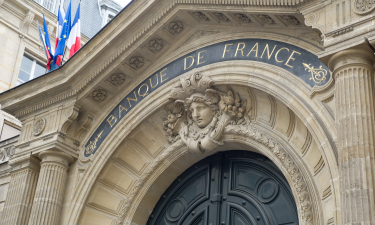The resulting decline in purchasing power is being keenly felt by French citizens, much more so than the average statistical data would suggest. However, government measures – with a significant budgetary cost, and which should wherever possible remain temporary and targeted – the favourable indexation of the minimum wage, and ongoing wage bargaining – which must remain decentralised – could limit this decline to an average of around 1% in 2022, before returning to the previous upward trend. The most disadvantaged of our fellow citizens, and those living in rural areas who consume more energy, are nevertheless more affected by these financial difficulties. The Banque de France is committed to helping people in France through its actions to tackle overindebtedness and enhance banking inclusion. Lastly, the expectations of economic players, now including those of businesses, show a fear that this resurgent inflation is here to stay, which is an additional reason for monetary policy to respond.
In our different scenarios, European and French inflation should return to around 2% in 2024: this is not only a forecast; it is our firm medium-term commitment. The Eurosystem will normalise its monetary policy as much as necessary: firstly, by exiting the exceptional measures taken when there was a danger of deflation especially at the start of the Covid crisis (including an end to negative interest rates by September). Then by continuing to raise its key interest rates to reach in the coming quarters a “neutral” level, between 1% and 2% in the short term. Lastly, by only tightening rates beyond this normalisation if, and only if, inflation requires it to do so. In other words, the European Central Bank (ECB) is moving in the same direction as the US Federal Reserve (Fed) and other central banks, even though the European situation does not necessarily require it to go as fast or as far.
For households and businesses, this means a return to a more normal interest rate environment, after years of exceptionally low interest rates. Without any new energy shock, the normalisation phase will not provoke a recession insofar as real rates – after deducting expected inflation – remain very favourable. However, as regards public debt, the illusion of cost-free, unlimited spending is a thing of the past: faced with persistently higher borrowing costs, France must regain control of its public debt. Bringing it down below 100% of gross domestic product (GDP) in a few years’ time, to the pre-Covid level, is possible if, with perseverance, we make a concerted and fair effort: priority for spending on the future, such as education, more efficient current operating costs through real public management, and prudence over cuts to taxes or employer charges that would be difficult to finance. If we fail to do so, we will be passing on to future generations not only a climate debt that rightly worries them, but also a financial debt that will jeopardise their future.
Past (monetary and fiscal) demand-side policies have thus lost both their relevance and their room for manoeuvre. There remains an essential lever to both reduce inflation and increase our potential growth: promoting policies to “beef up” our productive capacity, in order to achieve sustainable transformations. Two of them are common to Europe as a whole, the ecological transformation – including further efforts to save energy – and the digital transformation. They must be capable of mobilising European public and, above all, private resources. One challenge is more specific to France: increasing the supply of available labour, and its skills. Despite the current slowdown, 55% of French companies report recruitment difficulties! The solutions to our jobs deficit depend entirely on our national choices: increasing youth employment means further boosting apprenticeships and professional training; getting more seniors into work raises the question of a fair pension reform, and a real commitment from employers. Increasing our potential growth by 0.5% per year – while making this growth greener and fairer – will give us the means to limit inflationary pressures and, above all, to achieve real economic and social progress: full employment within five to ten years, financing of major ecological and digital investments, and a sustainable increase in purchasing power without placing a greater burden on our public finances.
The shock resulting from the Russian war in Ukraine is putting further strain on the economic environment, with a risk of additional tensions in energy. This Letter nevertheless expresses two convictions: France, together with the euro area, can reduce inflation; and our country will succeed in overcoming this shock if it shares the cost fairly between businesses, households and public administrations; and if it also harnesses its real strengths over the long term
